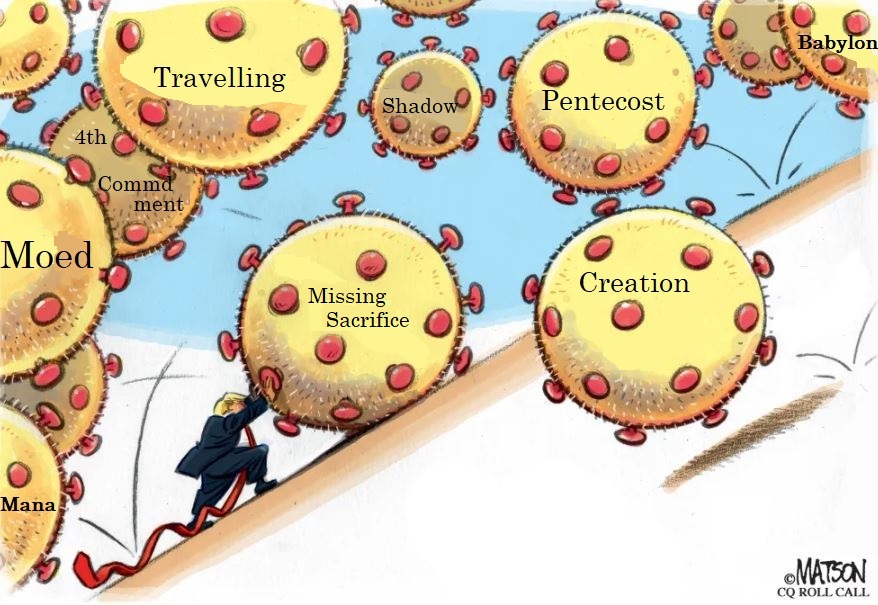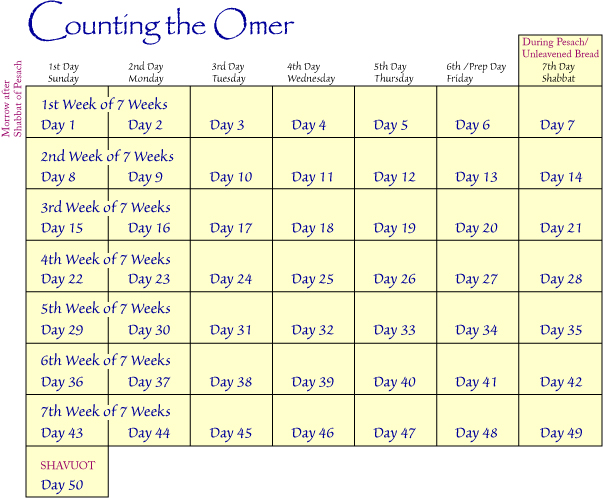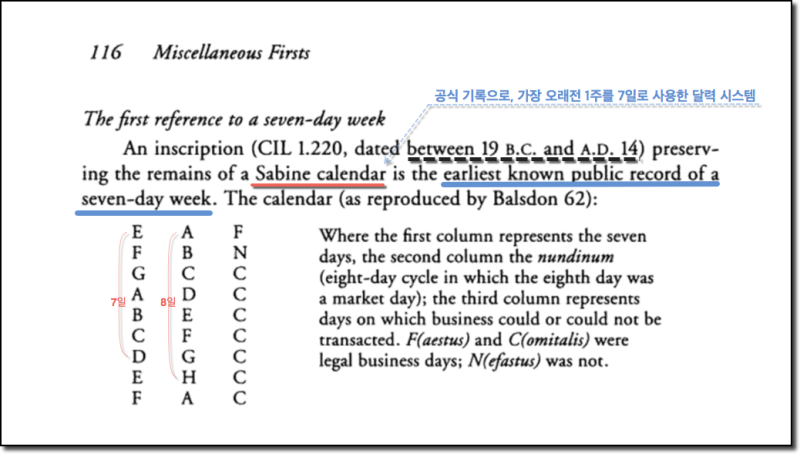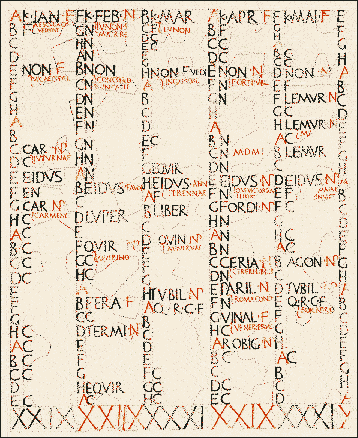
Problem One - Creation Week
| 1st Day | 2nd Day | 3rd Day | 4th Day | 5th Day | 6th Day | 7th Day |
| 1 | 2 | 3 | 4 | 5 | 6 | 7 |
| Light | Gen 1:14-16 Gen 1:17-19 Moon Given For Signs... |
Gen 2:3 Rest |
- The first day was a work day. (Gen 1:5)
- No where is it said to count the week from the moon.
- God never changed the week to follow the moon.
- Day eight from the beginning was not a Sabbath.
- The Seventh Day was blessed without using the moon.
Problem Two - Fourth Commandment
- No where in the fourth commandment does it mention to count the sabbath from the moon. (Ex 20:8-11)
- Neither does it anywhere else in the Pentateuch for that matter.
- Six days you will work means that there are only six other days in between all sabbath days.
- Six days is also found in gathering mana. (Ex 16:25-26)
- Even at the time of Jesus were there are only six days between sabbaths. (Luke 13:14)
- Never once in the Bible do you find someone switching days around on a new moon.
Problem Three - Creation Calendar Spelled Out The Fall Of Man
- If all the feasts days were made known from the beginning, and like the Passover they represent blood being shed for your sins then Adam and Eve never had a chance.
They were doomed to fail just by looking at God's creation. - Or else what purpose would any of these feast days have before sin?
- Plus if the Feast Days were set from the beginning we would also need this calendar since the Feast Days are on certain days of the month.
Why wait till until the time of Noah to even mention a month (Gen 7:11) if it was there from the beginning? - Why wait till Moses to explain all the Feast Days?
- And did God's Calendar even exist before Moses? (Ex 12:2)
Problem Four - Shadow Of Things To Come
Col 2:12-17 Buried with him in baptism, wherein also ye are risen with him through the faith of the operation of God, who hath raised him from the dead. And you, being dead in your sins and the uncircumcision of your flesh, hath he quickened together with him, having forgiven you all trespasses; Blotting out the handwriting of ordinances that was against us, which was contrary to us, and took it out of the way, nailing it to his cross; And having spoiled principalities and powers, he made a shew of them openly, triumphing over them in it. Let no man therefore judge you in meat, or in drink, or in respect of an holyday, or of the new moon, or of the sabbath days: Which are a shadow of things to come; but the body is of Christ.
And he shall confirm the covenant with many for one week: and in the midst of the week he shall cause the sacrifice and the oblation to cease, and for the overspreading of abominations he shall make it desolate, even until the consummation, and that determined shall be poured upon the desolate.
- Ex 12:2-3 is where God set up the Feast Days being governed by the New Moons.
- Ex 12:14 is where God explains this is an "feast by an ordinance for ever".
- Forever in the Bible many times means until the time has been fulfilled. (1 Sam. 1:22, Ex. 21:6, Jonah 2:6, Jer. 17:4, Jude 1:7)
- The New Moons and The Sabbath Days were ordinances that were taken out of the way.
- We no longer follow the New Moons because they were nailed to the cross.
- The Seventh Day Sabbath points backwards to creation and originally had no sacrifice to point forward, all the other feasts (Lev 23:37) were created with sacrifices.
Once the true Lamb Of God fulfilled what the sacrifices pointed to what purpose do the Feast Days have now?
With no need to sacrifice there is no need for the new moons or the feast days.
But removing the sacrifices on the Seventh Day Sabbath still leaves you with creation and a day blessed.
Plus God sealed his Ten Commandments by his signature of the Seventh Day Sabbath. - Again the Seventh Day Sabbath was never governed by the Moon and if it was it too would be nailed to the cross as the Moon Days were all ordinances that were done away with.
Problem Five - Lost In Translation
- The word Hebrew word for feast in Lev 23:1-3 comes from Moed which means an appointed time.
- Because the Sabbath is an appointed time does not mean it's governed by the moon like the rest of the appointed times in this chapter.
- First off there are many appointed times using the same word Moed that have nothing to do with the Feasts, Sabbaths or Moons.
- More importantly you can tell by the language used in the text (Lev 23:3) that the Sabbath is governed by it's weekly cycle (6 + 1) not the moon.
- You can also tell the other Feasts (Lev 23:4) are being governed by the moon or month unlike the Seventh Day Sabbath.
- If they were the same why not group them together, they were separated because they are different kinds of appointed types.
- If the Sabbath were to be on certain days the Bible would of told you so just like the other feast days in the chapter.
- The biggest lie of the Lunar Sabbath is to change God's word from a weekly cycle to assigned days.
Problem Six - Pentecost
- If you add up 7 Weeks + 1 day you get 50 days.
Using a new moon calculation you would not get 50 days.
- If you say we are supposed to add the 7 weeks and 50 days together.
- First it says count To NOT From. (Lev 23:16)
- If you were supposed to count them together other parallel passages in the Bible would relate the same thing which they don't. (Deut 16:9-10)
Problem Seven - There are no dates given for the Seventh Day.
- The Sabbath Day is always said to be on the seventh day.
- Never will you find it say to look for the Sabbath on the dates of 8,15,22, or 29.
Problem Eight - Traveling on the Sabbath - 1st Time
- Israel packed their backs and leaves Egypt on the Sabbath. (Num 33:3, Mat 24:20)
| 1st Day | 2nd Day | 3rd Day | 4th Day | 5th Day | 6th Day | 7th Day |
| 9 | 10 | 11 | 12 | 13 | 14 | 15 |
| Lev 23:5 | Num 33:3 Mat 24:20 Sounds like a lot of work to me |
Problem Nine - Traveling on the Sabbath - 2nd Time
- Israel travels again on the the 15th, this time on the second month. (Ex 16:1)
| 1st Day | 2nd Day | 3rd Day | 4th Day | 5th Day | 6th Day | 7th Day |
| 9 | 10 | 11 | 12 | 13 | 14 | 15 |
| Lev 23:5 | Ex 16:1 |
Problem Ten - Traveling on the Sabbath - 3rd Time
- This time they take a three days journey that ends on the Sabbath
- Does God expect Israel to set up camp today too?
- Or is all of Israel supposed to hang out without shelter that night?
| 1st Day | 2nd Day | 3rd Day | 4th Day | 5th Day | 6th Day | Sabbath |
| 16 | 17 | 18 | 19 | 20 | 21 | 22 |
| Num 10:11-12 Num 10:33 Journey Day 1 |
Journey Day 2 | Journey Day 3 Set Camp Up? |
Problem Eleven - Traveling on the Sabbath - 4th Time
- Mary, Joseph & Company all travel on the Sabbath. (Luke 2:43)
| 1st Day | 2nd Day | 3rd Day | 4th Day | 5th Day | 6th Day | Sabbath |
| 9 | 10 | 11 | 12 | 13 | 14 | 15 |
| Passover Lev 23:5 Luke 2:41-42 |
Unleavened Bread Day 1 Lev 23:6 |
|||||
| 1st Day | 2nd Day | 3rd Day | 4th Day | 5th Day | 6th Day | Sabbath |
| 16 | 17 | 18 | 19 | 20 | 21 | 22 |
| Unleavened Bread Day 2 | Unleavened Bread Day 3 | Unleavened Bread Day 4 | Unleavened Bread Day 5 | Unleavened Bread Day 6 | Unleavened Bread Day 7 Days have been fulfilled. |
Luke 2:43 Travel Day |
Problem Twelve - Traveling on the Sabbath - 5th Time
- Paul journey leaves on the Sabbath. (Acts 20:6)
| 1st Day | 2nd Day | 3rd Day | 4th Day | 5th Day | 6th Day | Sabbath |
| 9 | 10 | 11 | 12 | 13 | 14 | 15 |
| Unleavened Bread Day 1 Lev 23:6 |
||||||
| 1st Day | 2nd Day | 3rd Day | 4th Day | 5th Day | 6th Day | Sabbath |
| 16 | 17 | 18 | 19 | 20 | 21 | 22 |
| Unleavened Bread Day 2 | Unleavened Bread Day 3 | Unleavened Bread Day 4 | Unleavened Bread Day 5 | Unleavened Bread Day 6 | Unleavened Bread Day 7 | Act 20:6 Travel Day 1 |
| 1st Day | 2nd Day | 3rd Day | 4th Day | 5th Day | 6th Day | Sabbath |
| 23 | 24 | 25 | 26 | 27 | 28 | 29 |
| Travel Day 2 | Travel Day 3 | Travel Day 4 | Travel Day 5 Abode Day 1 |
Abode Day 2 | Abode Day 3 | Abode Day 4 |
| 30 - Transitional Day | ||||||
| Abode Day 5 | ||||||
| 1 - New Moon Day | ||||||
| Abode Day 6 | ||||||
| 1st Day | 2nd Day | 3rd Day | 4th Day | 5th Day | 6th Day | Sabbath |
| 2 | 3 | 4 | 5 | 6 | 7 | 8 |
| Acts 20:7 |
Problem Thirteen - Manna was given on the Sabbath Day.
- The manna ceased on the day after the sabbath? (Josh 5:12)
| 1st Day | 2nd Day | 3rd Day | 4th Day | 5th Day | 6th Day | 7th Day |
| 9 | 10 | 11 | 12 | 13 | 14 | 15 |
| Josh 5:10 | Josh 5:11 Why would there be manna here to eat this day? |
|||||
| 1st Day | 2nd Day | 3rd Day | 4th Day | 5th Day | 6th Day | 7th Day |
| 16 | 17 | 18 | 19 | 20 | 21 | 22 |
| Josh 5:12 |
Problem Fourteen - Sabbath was on day three of the week.
- The shewbread was switched out on day three, two days after the new moon.
- According to Lev 24:5-9 the shewbread was to be replaced on the Sabbath Day.
- More proof that this was the Sabbath Day in Mat 12:1-5. (Why use this example if this was not the Sabbath Day?)
Lev 24:5-9 "And thou shalt take fine flour, and bake twelve cakes thereof: two tenth deals shall be in one cake. And thou shalt set them in two rows, six on a row, upon the pure table before the LORD. And thou shalt put pure frankincense upon each row, that it may be on the bread for a memorial, even an offering made by fire unto the LORD. Every sabbath he shall set it in order before the LORD continually, being taken from the children of Israel by an everlasting covenant. And it shall be Aaron's and his sons'; and they shall eat it in the holy place: for it is most holy unto him of the offerings of the LORD made by fire by a perpetual statute."
Mat 12:1-5 "At that time Jesus went on the sabbath day through the corn; and his disciples were an hungred, and began to pluck the ears of corn, and to eat. But when the Pharisees saw it, they said unto him, Behold, thy disciples do that which is not lawful to do upon the sabbath day. But he said unto them, Have ye not read what David did, when he was an hungred, and they that were with him; How he entered into the house of God, and did eat the shewbread, which was not lawful for him to eat, neither for them which were with him, but only for the priests? Or have ye not read in the law, how that on the sabbath days the priests in the temple profane the sabbath, and are blameless?
| New Moon | ||||||
| 1 | ||||||
| 1 Sam 20:5 1 Sam 20:12 1 Sam 20:18 |
1 Sam 20:24-25 | |||||
| 1st Day | 2nd Day | 3rd Day | 4th Day | 5th Day | 6th Day | 7th Day |
| 2 | 3 - Sabbath | 4 | 5 | 6 | 7 | 8 |
| 1 Sam 20:27 1 Sam 20:33-34 |
1 Sam 20:35 1 Sam 20:42 1 Sam 21:1-4 1 Sam 21:5-6 |
Problem Fifteen - The Missing Sacrifice
-
Daily Offering - Num 28:3-4
- The scripture knew the Trumpets needed three types of offerings. Trumpets, New Moon, & Daily. (Num 29:6)
So did the scripture forget that the First Day Of Unleavened Bread landed on a Sabbath Day? (Num 28:23)
Sabbath Offering - Num 28:9 / Besides the Daily - Num 28:10
New Moon Offering - Num 28:11-15 / Besides the Daily - Num 28:15
Feast of Trumpets Offering - Num 29:1-5 / Besides the New Moon Offering & Daily Offering - Num 29:6
First Day fo the Feast of Unleavened Bread - Num 28:17-22 / Besides the Daily Num 28:23
| 1st Day | 2nd Day | 3rd Day | 4th Day | 5th Day | 6th Day | Sabbath |
| 9 | 10 | 11 | 12 | 13 | 14 | 15 |
| Passover Lev 23:5 |
Unleavened Bread Day 1 Lev 23:6 Besides the Feast Day Offering Just take the daily offering: Num 28:17-22 Num 28:23 |
- This goes the same for the Day Of Tabernacles (Num 29:12-15).
Both for the first they forget the Sabbath Offering. (Num 29:16)
And the eight day they forget the Sabbath Offering. (Num 29:35-38)
| 1st Day | 2nd Day | 3rd Day | 4th Day | 5th Day | 6th Day | Sabbath |
| 9 | 10 | 11 | 12 | 13 | 14 | 15 |
| Tabernacles Lev 23:34 Besides the Feast Day Offering Just take the daily offering: Num 29:12-15 Num 29:16 |
||||||
| 1st Day | 2nd Day | 3rd Day | 4th Day | 5th Day | 6th Day | Sabbath |
| 16 | 17 | 18 | 19 | 20 | 21 | 22 |
| Tabernacles Lev 23:34 Besides the Feast Day Offering Just take the daily offering: Num 29:35-37 Num 29:38 |
Problem Sixteen - Pentecost lands on the first day not the seventh.
-
Daily Offering - Num 28:3-4
- The scripture knew the Trumpets needed three types of offerings. Trumpets, New Moon, & Daily. (Num 29:6)
So did the scripture forget that Pentecost landed on a Sabbath Day? (Num 28:23)
It left out the Sabbath Offering right?
It is left out because the scripture knew Pentecost did not land on the Sabbath. - Lev 23:15 - Count Seven Sabbaths: 7x7=49 days - Starting on the morrow after the Sabbath equals The First Day. Or:
- Lev 23:16 - Count Seven Sabbaths plus the morrow (50 days) which equals The First Day.
- Lev 23:15 - Count Seven Sabbaths: Starting on the morrow after the Sabbath equals The First Day. And:
- Lev 23:16 - Count 50 more days after the Seven Sabbaths.
Sabbath Offering - Num 28:9 / Besides the Daily - Num 28:10
New Moon Offering - Num 28:11-15 / Besides the Daily - Num 28:15
Feast of Trumpets Offering - Num 29:1-5 / Besides the New Moon Offering & Daily Offering - Num 29:6
Pentecost - Num 28:26-30 - / Besides the Daily Offering - Num 28:31
Hopefully you already know how to count these.
-
Traditional way:

-
Lunar way:

Problem Seventeen - Bread Problem
- Unleavened Bread always ends right before the Sabbath.
- Do you eat an extra day of Unleavened Bread?
If so whey did God not tell them to eat the Unleavened Bread for eight days? - Do you bake leavened bread a week early?
If so would not the bread be going bad by then? - Or according to some the Sabbath don't start till the morning so I guess they could either go buy or quickly bake some bread that night?
This happens every year so you would think there would be a name for this.
Why did we never hear of The Breaded Night?
| 1st Day | 2nd Day | 3rd Day | 4th Day | 5th Day | 6th Day | Sabbath |
| 9 | 10 | 11 | 12 | 13 | 14 | 15 |
| Passover Lev 23:5 |
Unleavened Bread Day 1 Lev 23:6 |
|||||
| 1st Day | 2nd Day | 3rd Day | 4th Day | 5th Day | 6th Day | Sabbath |
| 16 | 17 | 18 | 19 | 20 | 21 | 22 |
| Unleavened Bread Day 2 | Unleavened Bread Day 3 | Unleavened Bread Day 4 | Unleavened Bread Day 5 | Unleavened Bread Day 6 | Unleavened Bread Day 7 At Evening: Hurry bake some bread |
Problem Eighteen - New Moon & Transitional Days
- Creation week we only see two types of days. Work & Rest.
- We do find New Moon Days in Num 28:11 where they sacrifice more than an normal day Num 28:4.
- It does NOT say we are not to work that day, in fact Moses was told to work on the New Moon. (Ex 40:2)
- Some point to Amos 8:5 to not buy or sell.
This was most likely the Trumpet Feast we see in Lev 23:24-25 or Num 29:1. - And I can't find a verse in the Bible that even talks about Transitional Days.
Problem Nineteen - Babylon invented the week.
- If you believe the Bible then you already know the answer to this.
- Jesus kept the Jewish Sabbath not a Babylonian one.
- If you need some outside source then here is a quote for you.
"The Old Testament frequently mentions the sabbath in connection with the new moon (Amos. viii. 5; Isa. 1. 13, lxvi. 23; Ezek. xlvi. 1, 3; II Kings iv. 23; II Chron. ii. 3) and also in connection with both new moon and feast (Hos. ii. 13; Ezek. xlv. 17; Neh. x. 34), but in none of these passages is there the slightest implication that the sabbath was connected in anyway with the moon, particulary (in contradistinction to the new moon) with the full moon. This statement is decisively confirmed by the commandments regarding the sabbath (Ex. xx. 9-11, xxiii. 12, xxxiv. 21; Deut. v. 12-15) ... It is now held by many that the sabbath is Babylonian in origin, though received by the Jews immediately from the Canaanites; while another hypothesis maintains that the sabbath represents a moon-feast of the nomadic ancestors of the Israelites. The Canaanitic and nomadic theories are both undemonstrable [i.e., cannot be demonstrated from Scripture or history] and unnecessary... It has also been held that the seventh, fourteenth, twenty-first, and twenty-eighth days of the month, designated as ill-omened, were the Babylonian sabbaths; but for this argument there is no evidence, and it must accordingly be assumed that the fifteenth day of each month was the sabbath of the Babylonians. This day was reckoned that of the full moon, but since the Hebrew sabbath was not connected with the full moon and was a day of gladness, not of penance, and since the Babylonians had no week of seven days, the assumption that the Hebrews borrowed the sabbath from the Babylonians lacks all foundation." (The New Schaff-Herzog Encyclopedia of Religious Knowledge, Vol.10, p.135) (Published 1911)
Problem Twenty - Calendars
- Rome had seven day week calendar in use between 19 B.C and 4 A.D.
- This Calendar had both the seven days from the Jews and the eight days from Rome.
- It was not Constantine who came up with the seven day week.
- It was not that Rome influenced Israel on seven day week.
- It was Israel that influenced Rome on the seven day week.
- Rome like usual mixed Paganism with Christianity and put Pagan names to each of the seven days.
- But the seven day week was already there. Rome just started using it.
- What did Josephus (37AD-100AD) have to say about this?


Nay, further, the multitude of mankind itself have had a great inclination of a long time to follow our religious observances; for there is not any city of the Grecians, nor any of the barbarians, nor any nation whatsoever, whither our custom of resting on the seventh day hath not come. (Flavius Josephus. The Works of Flavius Josephus. Translated by. William Whiston, A.M. Auburn and Buffalo. John E. Beardsley. 1895.)
|
Historical quotes here: |
More Proof |